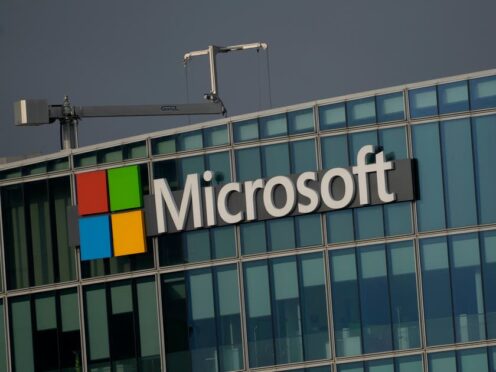
Microsoft violated European Union competition rules with “possibly abusive” practices by tying its Teams messaging and videoconferencing app to its widely used business software, the bloc has said.
The European Commission said on Monday that it has informed Microsoft of its preliminary view that the US tech giant has been “restricting competition” by bundling Teams with core office productivity applications such as Office 365 and Microsoft 365.
The commission, the 27-nation bloc’s top competition enforcer, said it suspects Microsoft might have granted Teams a “distribution advantage” by not giving customers a choice on whether to have Teams when they purchased the software.
The advantage might have been widened by limits on the ability of rival messaging apps to work with Microsoft software, it said.
“We are concerned that Microsoft may be giving its own communication product Teams an undue advantage over competitors, by tying it to its popular productivity suites for businesses,” said Margrethe Vestager, the commission’s executive vice-president for competition policy.
“And preserving competition for remote communication and collaboration tools is essential as it also fosters innovation on these markets.”
Microsoft made some changes last year in an effort to head off a penalty, including offering the software packages without Teams for European customers. But the Commission said on Tuesday that the changes are not enough to address its concerns and that it needs to do more to “restore competition”.
Microsoft President Brad Smith said in a prepared statement: “Having unbundled Teams and taken initial interoperability steps, we appreciate the additional clarity provided today and will work to find solutions to address the Commission‘s remaining concerns.”
In April, the company also gave customers worldwide the option to get Microsoft 365 and Office 365 without Teams. The two software suites include programs like Word, Excel and Outlook.
Microsoft now has a chance to respond to the accusations, formally known as a statement of objections, before the Commission makes its final decision.
The company could face a fine worth up to 10% of its annual global revenue, or be forced to carry out “remedies” to satisfy the competition concerns.
We've informed Microsoft over possibly abusive tying practices regarding Teams.
Our preliminary view is that the company is giving its own communication product, Teams, an undue advantage over competitors by tying it to its popular productivity suites for businesses.
More ↓
— European Commission (@EU_Commission) June 25, 2024
The Commission opened its investigation in July 2023 after rival Slack Technologies, which makes popular workplace messaging software, filed a complaint with Brussels. A second company, videoconferencing software maker Alfaview, filed a second complaint.
Rival messaging platform Slack, owned by business software maker Salesforce, has alleged that Microsoft abused its market dominance to eliminate competition – in violation of EU laws – by illegally combining Teams with its Office suite, which includes Word, Excel and Outlook.
Sabastian Niles, president and chief legal officer at Salesforce, said: “The Statement of Objections issued today by the European Commission is a win for customer choice and an affirmation that Microsoft’s practices with Teams have harmed competition.
“We appreciate the Commission’s thorough investigation of Slack’s complaint and urge the Commission to move towards a swift, binding, and effective remedy that restores free and fair choice and promotes competition, interoperability, and innovation in the digital ecosystem.”

Enjoy the convenience of having The Sunday Post delivered as a digital ePaper straight to your smartphone, tablet or computer.
Subscribe for only £5.49 a month and enjoy all the benefits of the printed paper as a digital replica.
Subscribe